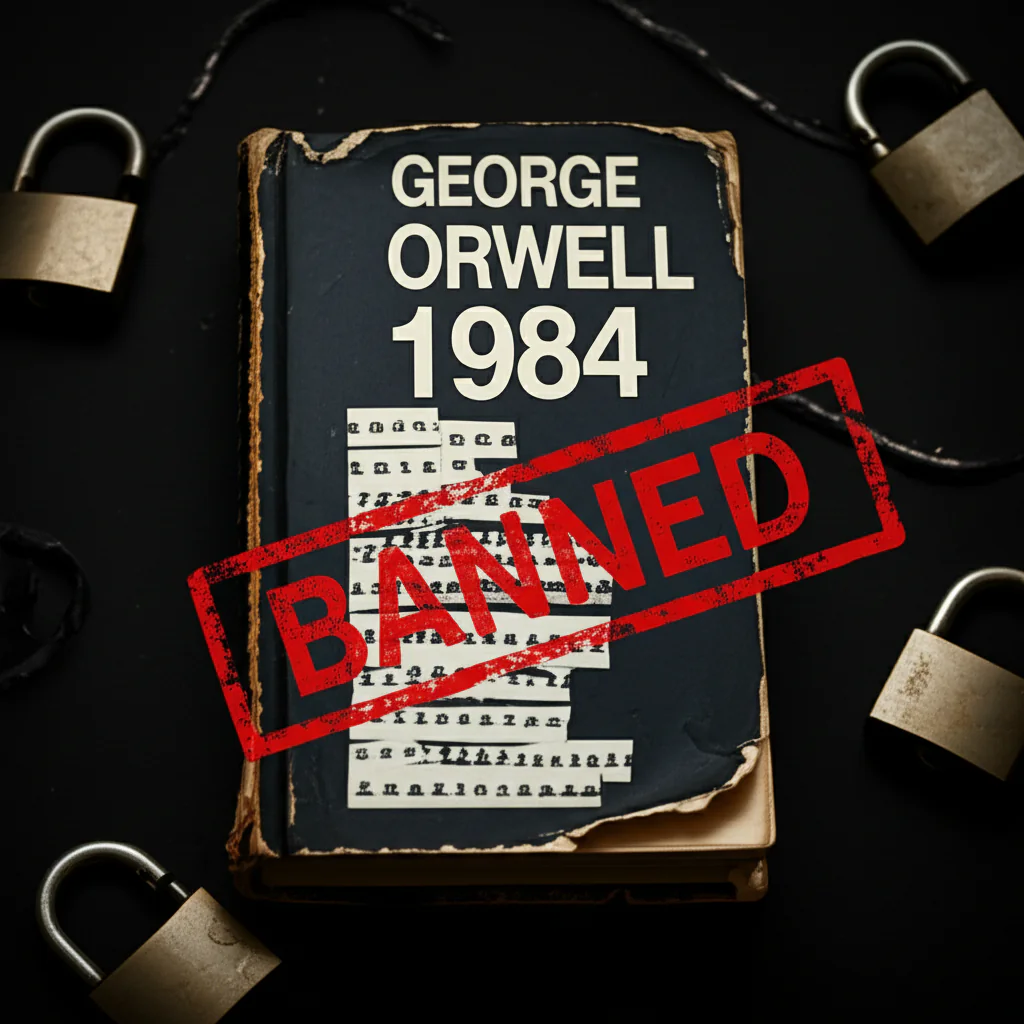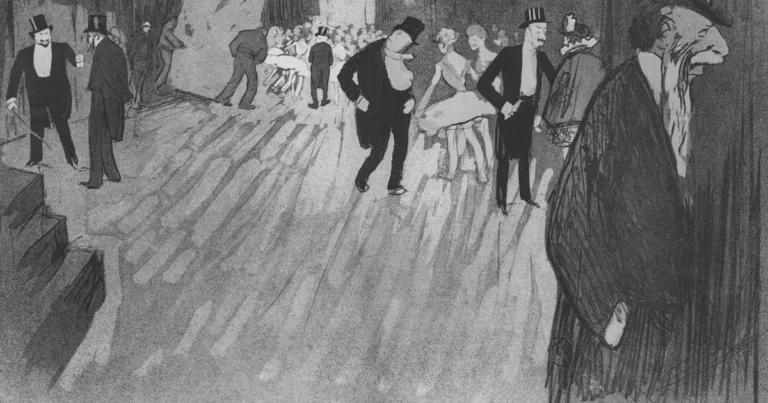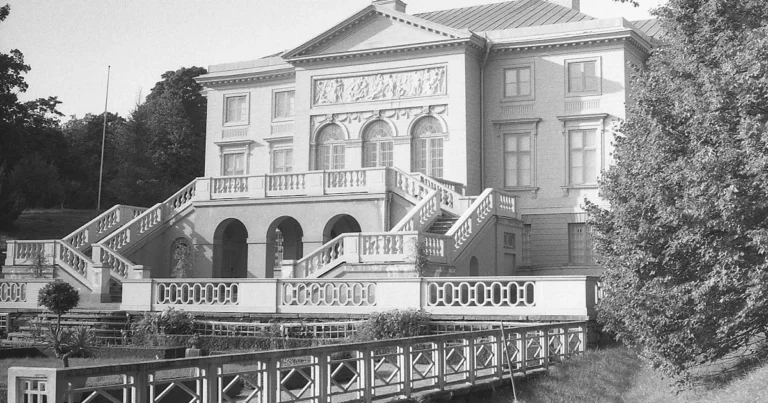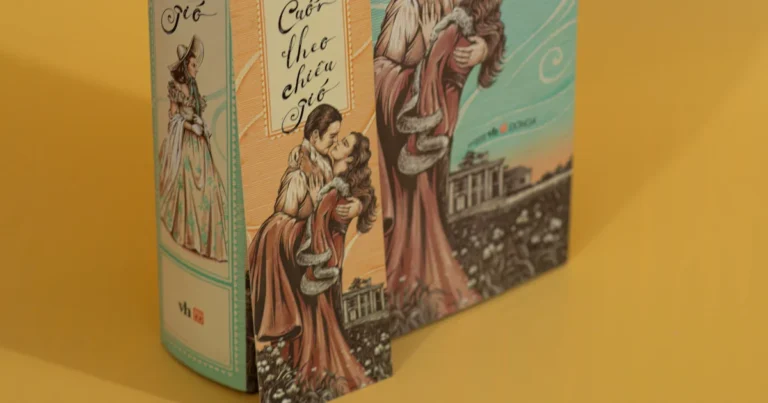Support our educational content for free when you purchase through links on our site. Learn more
When Was *1984* Banned? 7 Shocking Censorship Moments (2025) 📚

Did you know George Orwell’s 1984—a novel warning against censorship and authoritarian control—has itself been banned or challenged multiple times across the globe? From Cold War paranoia in the U.S. to outright bans in the Soviet Union, this book’s journey through censorship is as twisted and ironic as the dystopia it depicts. In this article, we unravel the timeline of 1984’s bans, explore the surprising reasons behind them, and reveal why this classic remains a lightning rod for controversy even in 2025.
Stick around for a fascinating look at how a book about surveillance became a target of censorship itself, and discover the unexpected places and moments when Big Brother’s shadow reached out to silence Orwell’s masterpiece. Plus, we share insights from our Book Summary Review™ team on why you should read 1984 today—despite, or maybe because of, its checkered history.
Key Takeaways
- First banned in 1949 in the Soviet Union for its anti-totalitarian message, 1984 has faced censorship worldwide for conflicting reasons—from being labeled “pro-communist” to “sexually explicit.”
- Local challenges in U.S. schools and libraries continue to this day, with recent removals in Iowa sparking legal battles over intellectual freedom.
- The book’s themes of surveillance, propaganda, and rebellion make it a perennial threat to authorities and a must-read for critical thinkers.
- Banning 1984 ironically proves Orwell’s warnings about censorship and control, making it more relevant than ever.
- Our Book Summary Review™ team highly recommends 1984 as essential reading to understand power, truth, and freedom in the modern world.
👉 Shop 1984 on: Amazon | Barnes & Noble | Walmart
Table of Contents
- ⚡️ Quick Tips and Facts: Unmasking the Censorship of 1984
- 📚 Unveiling the Dystopian Nightmare: The Genesis of 1984 and Its Controversial Journey
- 🗓️ When Was 1984 Banned? A Timeline of Censorship and Resistance
- 🌍 Where Did Big Brother’s Censors Strike? Global Instances of 1984 Bans
- 🤔 Why Was 1984 Deemed Dangerous? Unpacking the Reasons Behind the Bans
- 🌟 The Enduring Legacy: Why 1984 Still Haunts Our Shelves (and Our Minds)
- 📖 Our Personal Journey with 1984: A Book Summary Review™ Perspective
- 🛡️ Fighting the Thought Police: How Readers and Librarians Champion Literary Freedom
- ✅ Is 1984 Still Banned Today? The Ongoing Battle for Literary Access
- 📚 Beyond Oceania: Other Dystopian Novels That Faced the Censor’s Wrath
- 📧 Join the Resistance: Stay Informed on Literary Freedom & Classic Reads
- 🔚 Conclusion
- 🔗 Recommended Links
- ❓ FAQ: Your Burning Questions About 1984 and Censorship Answered
- 📚 Reference Links
⚡️ Quick Tips and Facts: Unmasking the Censorship of 1984
Welcome, fellow bibliophiles, to the Book Summary Review™ vault! Today, we’re tackling a titan of literature that’s as famous for its chilling predictions as it is for the controversy it stirs: George Orwell’s Nineteen Eighty-Four. Ever wonder why a book about censorship gets… well, censored? The irony is thicker than the Party’s ideology. Let’s dive into the doublethink with some quick facts!
- Double-Sided Controversy: Here’s the kicker! 1984 has been attacked for being both pro-communist and anti-communist. Yep, you read that right. In 1981, it was challenged in Jackson County, Florida, for being “pro-communist,” while the Soviet Union banned it for being a scathing critique of communism. Talk about a political chameleon!
- Not Just Politics: While the book’s political themes are the main event, it has also been challenged for “explicit sexual matter.” Winston and Julia’s rebellious affair, a central act of defiance, was deemed too risqué for some readers.
- A Global Target: This wasn’t just an American squabble. The USSR and other Soviet bloc countries banned the book almost immediately after its 1949 publication, fearing its power as an “ideological superweapon.” In fact, owning a copy in the Soviet Union could land you in prison.
- Still Relevant, Still Challenged: Think the controversy is ancient history? Think again! As recently as 2023, 1984 was one of hundreds of classic books removed from some Iowa school libraries due to a new state law restricting depictions of sex acts. A federal judge has since blocked that part of the law, but the battle rages on.
- The Ultimate Irony: A book that serves as a stark warning against censorship, surveillance, and the manipulation of truth has repeatedly found itself on banned book lists. The very act of banning 1984 proves Orwell’s point in the most spectacular fashion. It’s so ironic, the American Library Association even themed the 2025 Banned Books Week “Censorship Is So 1984.”
📚 Unveiling the Dystopian Nightmare: The Genesis of 1984 and Its Controversial Journey
To truly grasp why 1984 has been such a lightning rod, we have to travel back to the time of its creation. George Orwell (the pen name for Eric Blair) wrote this masterpiece while battling tuberculosis, publishing it in 1949. The world was reeling from the horrors of World War II, and the shadows of totalitarian regimes like Nazi Germany and Stalinist Russia loomed large. Orwell, a democratic socialist himself, had witnessed the brutal tactics of political propaganda and oppression firsthand, particularly during the Spanish Civil War.
This wasn’t just a flight of fancy; it was a warning. As we explore in our deep dive, Unlocking 1984 Full Book: 15 Must-Know Facts & Insights 📖 (2025), Orwell poured his disillusionment and fears into the novel. He created a world—Oceania—where the Party, led by the omnipresent Big Brother, controls every aspect of life, from history (“He who controls the past controls the future”) to language itself with the invention of Newspeak. For more on authors who’ve shaped our world, check out our Author Profiles.
The book’s core concepts—the Thought Police, Room 101, doublethink—were so potent and terrifyingly plausible that they immediately struck a nerve. It was a direct assault on the very nature of totalitarianism, exploring Literary Themes of power, control, and individuality that are timeless. And from the moment it hit the shelves, it was destined for a life of controversy.
🗓️ When Was 1984 Banned? A Timeline of Censorship and Resistance
So, when exactly did the thought police come for 1984? The answer isn’t a single date but a long, winding history of challenges and outright bans that continues to this day.
| Year | Location | Reason for Challenge/Ban |
|---|---|---|
| 1950 | USSR & Soviet Bloc | Immediately banned after publication for its stark anti-communist and anti-totalitarian themes. Owning a copy was a criminal offense. |
| 1981 | Jackson County, Florida, USA | A now-infamous challenge where the book was accused of being “pro-communist and contained explicit sexual matter.” |
| 1980s | Wrenshall, Minnesota, USA | A teacher was reportedly fired for refusing to remove the novel from a reading list (this case remains unconfirmed). |
| 1988 | USSR | The ban was finally lifted as the Soviet Union began to collapse. |
| 2017 | Jefferson County, Idaho, USA | The book came under scrutiny after a parent challenged it for containing “violent, sexually charged language.” |
| 2023 | Multiple School Districts, Iowa, USA | Temporarily removed from school libraries due to a state law (Senate File 496) banning books with descriptions of sex acts. |
This timeline shows that the reasons for banning 1984 are as shifting as the Party’s official history. What one group sees as a warning against communism, another sees as promoting it.
🌍 Where Did Big Brother’s Censors Strike? Global Instances of 1984 Bans
While the United States has seen numerous challenges—that is, attempts to remove the book from schools or libraries—it has never been subject to a nationwide ban. The real, state-enforced bans happened where the book’s critique hit closest to home.
The most significant ban was in the Soviet Union and its satellite states in the Eastern Bloc. For them, 1984 wasn’t a dystopian fantasy; it was a dangerously accurate reflection of their reality. The Party’s manipulation of history, the constant surveillance, the persecution of dissenters—these were all features of life under Stalinist rule. The Soviet government was so threatened that it not only banned the book but also produced propaganda claiming Orwell’s work was actually a critique of American life.
In the West, the story is one of localized battles rather than sweeping government decrees. The challenges in places like Florida, Minnesota, and Idaho were typically initiated by parent groups or local school boards, not the federal government. These skirmishes highlight a different kind of censorship—one driven by community standards and parental concern rather than state ideology.
🤔 Why Was 1984 Deemed Dangerous? Unpacking the Reasons Behind the Bans
Why does this nearly 80-year-old book still get people so riled up? The reasons are complex and often contradictory, which, in true Orwellian fashion, is perfectly fitting.
🧊 The Cold War Conundrum: Anti-Communist vs. Pro-Communist Bans
This is the great paradox of 1984‘s censorship history.
- ❌ The Anti-Communist Ban: In the USSR, the book was seen as a direct and vicious satire of Stalin’s regime. Orwell’s depiction of a totalitarian state built on lies and fear was too close for comfort. Banning it was a desperate attempt to prevent citizens from drawing obvious parallels.
- ❌ The “Pro-Communist” Challenge: In the U.S., during the height of Cold War paranoia, some critics performed incredible mental gymnastics to arrive at the opposite conclusion. The 1981 challenge in Florida is the most cited example. The argument, though widely seen as a misreading, was that the book’s bleak portrayal of a socialist-style government (Ingsoc, or “English Socialism”) was somehow an endorsement. It’s a classic case of what we’d now call “doublethink.”
✊ Challenging Authority: When Truth Becomes Treason
At its core, 1984 is a book that encourages readers to question authority and be skeptical of official narratives. This is a dangerous idea for any power structure that relies on unquestioning obedience.
The novel’s protagonist, Winston Smith, works at the Ministry of Truth, where his job is to literally rewrite history. His rebellion begins with the simple, private act of keeping a diary—of insisting on his own memory and his own version of reality. For any government or group that wants to control the narrative, a book that celebrates this kind of intellectual rebellion is a profound threat.
🔞 Content Concerns: Beyond the Political Divide
It’s not all high-minded political debate. Some of the most recent challenges against 1984 have centered on its “adult” themes.
- Sexual Content: Winston and Julia’s affair is a crucial part of the plot. Their physical relationship is an act of personal and political rebellion—a “blow struck against the Party.” However, the descriptions of their encounters have been flagged as “sexually explicit” and inappropriate for younger readers. This was a key factor in the recent Iowa book removals.
- Violence and Torture: Let’s be honest, the book is grim. The depiction of Winston’s torture in the Ministry of Love, particularly in Room 101, is harrowing. Some have argued this content is too violent or disturbing for a school curriculum.
🌟 The Enduring Legacy: Why 1984 Still Haunts Our Shelves (and Our Minds)
So, why are we still talking about, reading, and arguing over a book written in 1949? Because it’s terrifyingly relevant. Orwell’s invented vocabulary has become our reality.
- Big Brother is Watching You: From CCTV on every corner to our digital footprints on social media, the concept of constant surveillance is no longer fiction.
- Newspeak and Doublethink: Think about political spin, “alternative facts,” or corporate jargon designed to obscure meaning. That’s Newspeak in action.
- Thoughtcrime: In an era of “cancel culture” and intense social media scrutiny, the fear of expressing an unpopular opinion can feel like a modern form of thoughtcrime.
The book serves as a permanent, powerful warning. It’s a lens through which we can examine our own world. And that’s precisely why it continues to be both essential and controversial. The very fact that people try to ban it is the ultimate proof that we need to keep reading it. The excellent video embedded above, titled “Why is 1984 a banned book?” by Ask About Life & How-To, offers a great visual summary of these points and is well worth a watch #featured-video.
📖 Our Personal Journey with 1984: A Book Summary Review™ Perspective
Here at Book Summary Review™, we’ve all had our “Winston Smith moment” with 1984. For many of us, reading it for the first time in high school was a revelation. It was the first book that didn’t just tell a story; it fundamentally changed how we saw the world. It was bleak, yes, but it was also empowering. It felt like being handed a secret key, a way to decode the language of power and control.
We believe that reading 1984 is a rite of passage. It teaches critical thinking in a way few other books can. It forces you to confront uncomfortable questions about society, freedom, and your own mind. That’s why we feature it prominently in our Book Summaries and Book Reviews. To shy away from its difficult themes is to do a disservice to young readers, who are more than capable of grappling with its message. The discomfort it creates is precisely the point—it’s the friction that sparks critical thought.
Ready to face Big Brother? Grab your copy and see for yourself why this book is too important to ignore.
- 👉 Shop Nineteen Eighty-Four on: Amazon | Barnes & Noble | Walmart
🛡️ Fighting the Thought Police: How Readers and Librarians Champion Literary Freedom
For every attempt to ban 1984, there has been a passionate defense from those who understand its value. Librarians, teachers, students, and organizations like the American Library Association (ALA) and PEN America are the front-line soldiers in the war against censorship.
The ALA’s annual Banned Books Week is a fantastic initiative that shines a spotlight on challenged books. It celebrates the freedom to read and encourages people to seek out the very titles that others want to hide. It’s a reminder that in a majority of cases, these challenges fail because community members stand up for their libraries and for intellectual freedom. These defenders of literature argue that removing books like 1984 from libraries doesn’t protect students; it robs them of the chance to engage with complex ideas and learn to think for themselves.
✅ Is 1984 Still Banned Today? The Ongoing Battle for Literary Access
So, what’s the final verdict? Is Big Brother winning?
- ✅ Is it available? Yes! In most of the world, 1984 is readily available. There are no national bans on the book in the United States, the United Kingdom, or other major democracies. You can walk into almost any bookstore and buy a copy.
- ❌ Is it safe from censorship? Absolutely not. As the recent events in Iowa demonstrate, the book is still a target. School districts and local libraries remain the primary battlegrounds where challenges can lead to temporary or permanent removal from shelves. The reasons may have shifted slightly over the years—from fears of communism to concerns over sexual content—but the impulse to censor remains.
The fight for 1984‘s place on the shelf is a microcosm of the larger fight for intellectual freedom. Its status is a barometer for how willing we are to confront uncomfortable ideas.
📚 Beyond Oceania: Other Dystopian Novels That Faced the Censor’s Wrath
1984 isn’t alone in its struggle. Its dystopian cousins have also frequently found themselves in the censor’s crosshairs for challenging the status quo.
| Book Title | Author | Common Reasons for Bans/Challenges |
|---|---|---|
|
Brave New World |
Aldous Huxley | Deemed anti-family and anti-religion; themes of promiscuity and drug use. |
|
Fahrenheit 451 |
Ray Bradbury | Ironically, this book about book-burning has been banned for its use of profanity and questioning of authority. |
|
The Handmaid’s Tale |
Margaret Atwood | Challenged for being anti-Christian, sexually explicit, and offensive to religious values. |
|
The Hunger Games |
Suzanne Collins | Criticized for violence, anti-government themes, and being insensitive to some readers. |
|
A Clockwork Orange |
Anthony Burgess | Banned in various places for its extreme violence, “ultra-violence,” and offensive language. |
These stories, like 1984, serve as cautionary tales. They push boundaries and force us to look at the ugliest parts of human nature and society. It’s no wonder they make some people uncomfortable.
📧 Join the Resistance: Stay Informed on Literary Freedom & Classic Reads
The fight against censorship is ongoing, and knowledge is your best weapon. If you’re passionate about literary freedom and want to dive deeper into the world’s most impactful books, you’re in the right place. Join the Book Summary Review™ community! We’ll deliver insights, reviews, and news about the books that matter straight to your inbox. Don’t let the thought police win—stay informed, stay critical, and keep reading.
🔚 Conclusion
After our deep dive into the history, controversies, and ongoing battles surrounding George Orwell’s 1984, one thing is crystal clear: this book is far more than just a dystopian novel. It’s a timeless warning about the dangers of unchecked power, surveillance, and censorship. The irony that 1984 itself has been banned or challenged repeatedly only underscores Orwell’s message about the fragility of freedom.
Positives:
✅ 1984 offers profound insights into political manipulation and human psychology.
✅ Its themes remain relevant in today’s digital age, making it essential reading for critical thinkers.
✅ The novel has inspired countless readers, activists, and thinkers to question authority and defend intellectual freedom.
Negatives:
❌ Its bleakness and disturbing content can be challenging for some readers.
❌ The sexual and violent themes have led to censorship attempts, limiting access in some educational settings.
Our Recommendation: We wholeheartedly recommend 1984 to anyone interested in literature that challenges, provokes, and enlightens. It’s a must-read for students, educators, and anyone concerned about the state of freedom and truth in society. Don’t let the bans and challenges deter you—embrace the book’s power to open your eyes and sharpen your mind.
Remember those unresolved questions about why a book warning against censorship would itself be censored? The answer lies in the very nature of power and fear. 1984 threatens those who want control without question, making it a perennial target. But as long as readers stand up for it, Big Brother will never win.
🔗 Recommended Links
Ready to dive into 1984 and explore its chilling world yourself? Check out these trusted platforms to get your copy:
-
Nineteen Eighty-Four by George Orwell:
Amazon | Barnes & Noble | Walmart -
Brave New World by Aldous Huxley:
Amazon | Barnes & Noble | Walmart -
Fahrenheit 451 by Ray Bradbury:
Amazon | Barnes & Noble | Walmart
❓ FAQ: Your Burning Questions About 1984 and Censorship Answered
When was George Orwell’s 1984 first banned?
1984 was first banned shortly after its publication in 1949, most notably in the Soviet Union and other Eastern Bloc countries. The book’s critical portrayal of totalitarian regimes, especially Stalinist Russia, made it a threat to communist governments, which swiftly prohibited its circulation. In the West, formal bans were rare, but local challenges and removals began appearing in the 1950s and escalated during the Cold War.
Why was 1984 banned in some countries?
The primary reason was its anti-totalitarian message. Governments that saw themselves reflected in Orwell’s dystopia feared the book’s power to inspire dissent and question authority. In the USSR, it was banned for exposing the brutal realities of Stalinism. In some Western areas, it was paradoxically challenged for allegedly promoting communism or containing inappropriate sexual content. The book’s themes of surveillance, propaganda, and rebellion made it a lightning rod for censorship.
Is 1984 still banned anywhere today?
While 1984 is not subject to any known nationwide government bans today, it continues to face localized challenges and removals, particularly in school libraries and curricula. For example, in 2023, parts of Iowa temporarily removed the book due to a law restricting books with descriptions of sex acts. However, federal courts have blocked such bans, affirming the book’s protected status under free speech laws. The battle over access continues in various communities.
What are the main reasons for banning 1984?
The main reasons include:
- Political concerns: Fear that the book promotes or criticizes certain ideologies.
- Sexual content: The relationship between Winston and Julia is sometimes deemed inappropriate for younger readers.
- Violence and torture: Graphic depictions of psychological and physical abuse.
- Challenging authority: The book encourages skepticism of government and official narratives, unsettling those in power.
How did the banning of 1984 affect its popularity?
Ironically, attempts to ban 1984 have often boosted its popularity. Controversy draws attention, and many readers seek out banned books precisely because they are forbidden. The book’s status as a banned or challenged work has cemented its reputation as a classic of political literature and a symbol of intellectual freedom.
Are there any famous challenges to 1984 in schools?
Yes! One of the most famous challenges occurred in 1981 in Jackson County, Florida, where the book was accused of being pro-communist and containing explicit sexual matter. More recently, school districts in Idaho and Iowa have faced challenges or removals of the book due to concerns over sexual content and age-appropriateness. These cases often spark heated debates about censorship, education, and parental rights.
What themes in 1984 have caused controversy and censorship?
Key controversial themes include:
- Surveillance and loss of privacy: The omnipresent Big Brother watching everyone.
- Manipulation of truth and history: The Party’s control over facts and memory.
- Rebellion and individuality: The dangers of nonconformity in a totalitarian state.
- Sexuality as political rebellion: The intimate relationship between Winston and Julia.
- Psychological and physical torture: The brutal methods used to enforce conformity.
📚 Reference Links
For further reading and verification, check out these reputable sources:
- American Library Association – Banned Books Week
- PEN America – Free Expression and Censorship
- The Guardian – Iowa book ban blocked by federal judge
- Explore the Archive – History of Banned Books
- Wikipedia – List of books banned by governments
- Amazon – 1984 by George Orwell
- Barnes & Noble – 1984 by George Orwell
Thanks for joining us on this journey through the fascinating and fraught history of 1984’s censorship. Remember, reading banned books is a powerful act of resistance—so keep your eyes open, your mind sharp, and your bookshelves stocked! 📚✨



